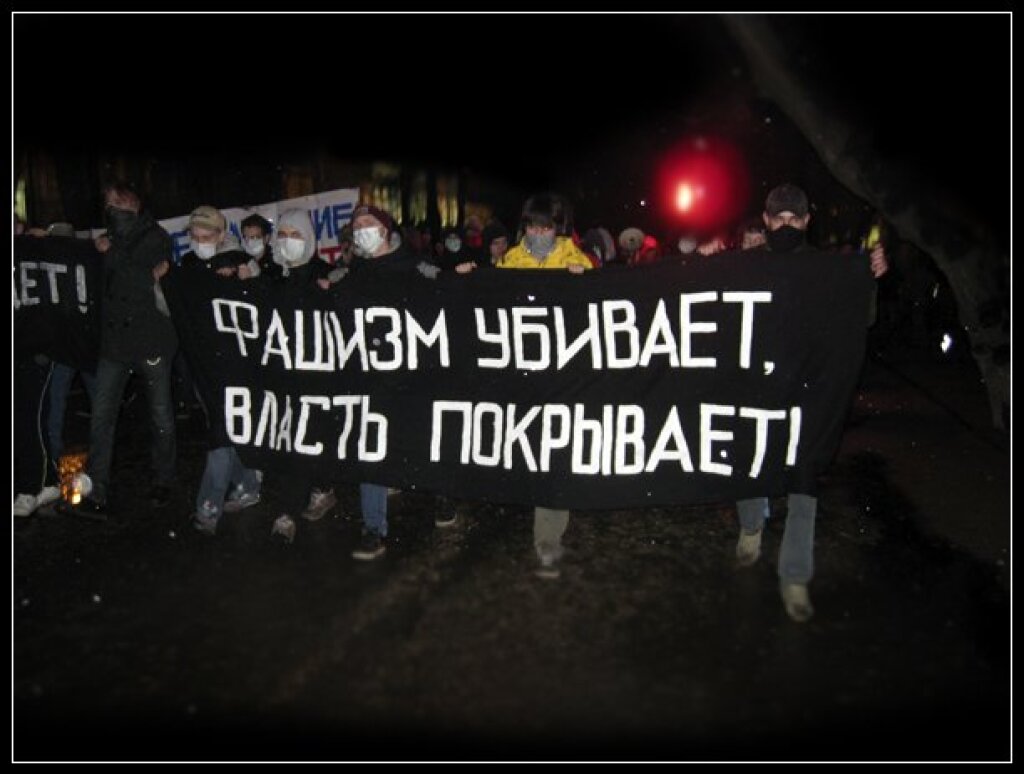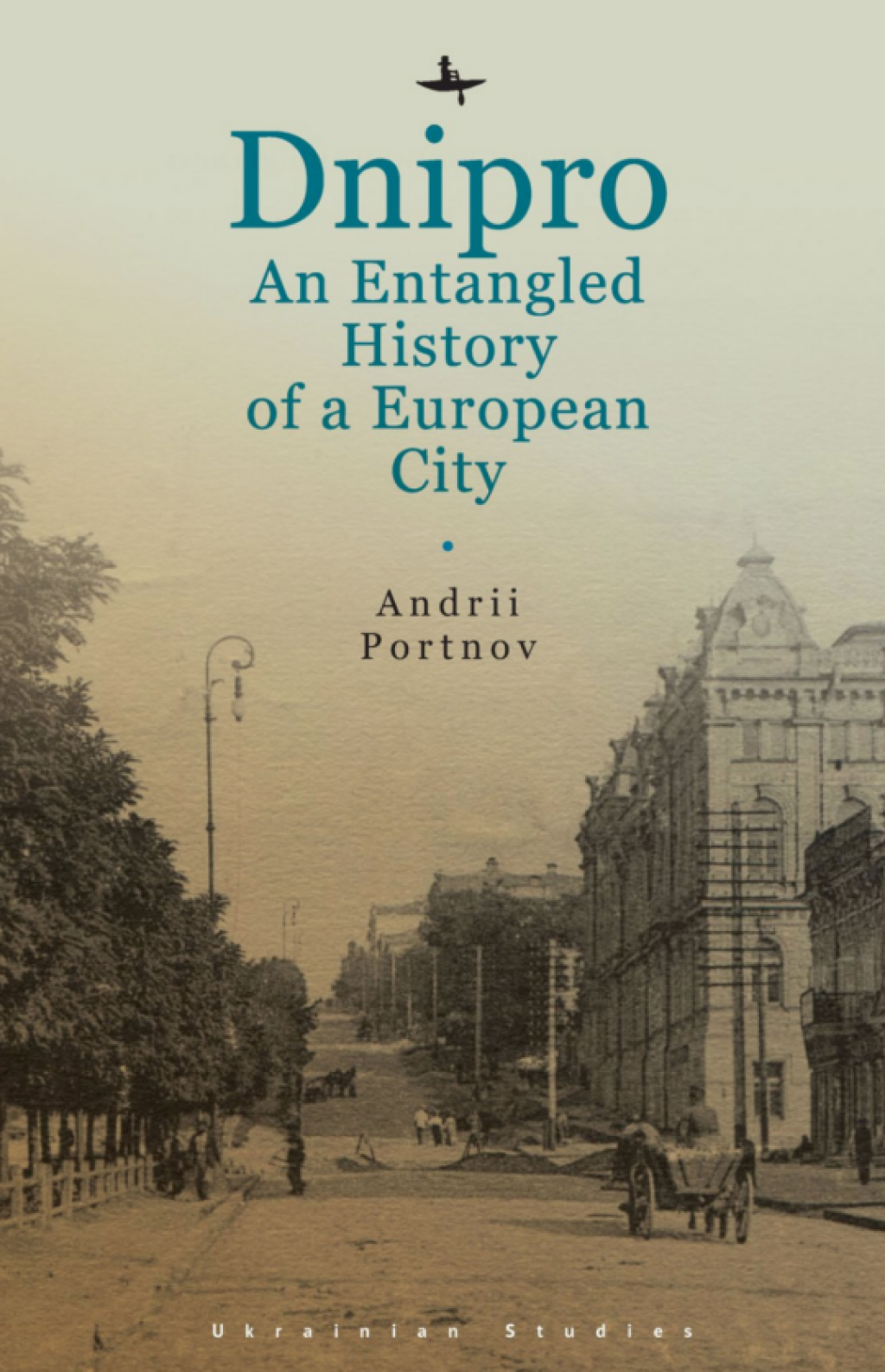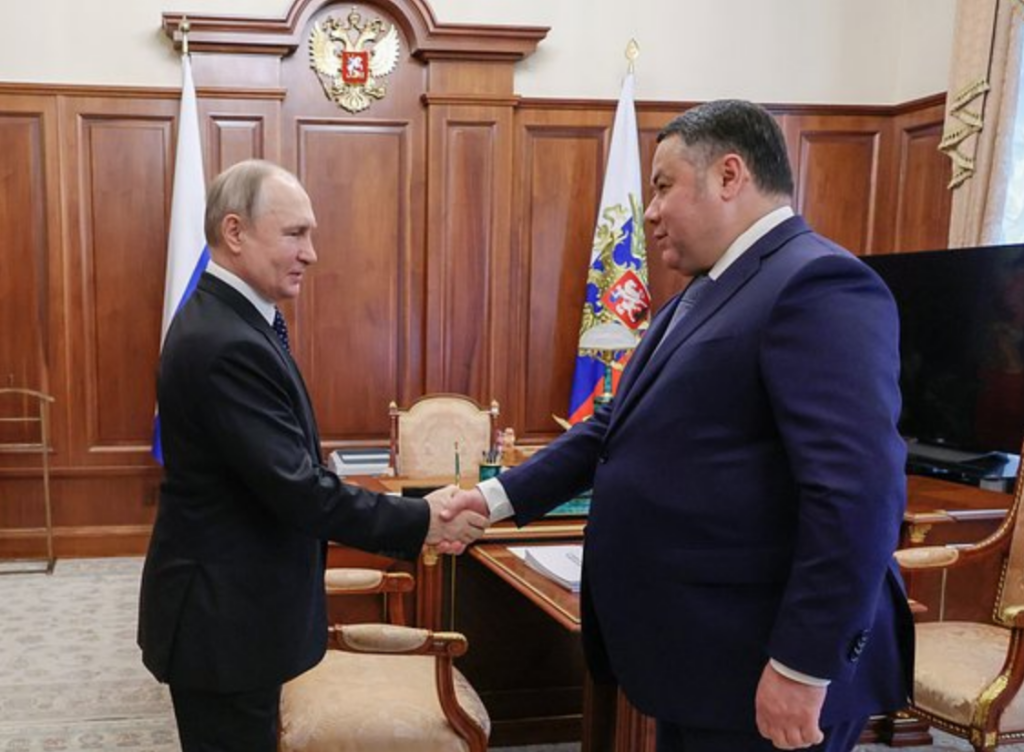Rossen Djagalov is Assistant Professor of Comparative Literature at Koç Univeristy (Istanbul)
Writing in the middle of a crisis is always dangerous. Analysis, predictions, recommendations can be proven dramatically wrong within a matter of days. I write these lines as the main author of an editorial statement of the LeftEast platform, which in addition to causing a serious controversy within our editorial board, proved spectacularly wrong in its optimistic predictions that the aftermath of this Second Orange Revolution—a mass, anti-authoritarian movement that spectacularly replaces of one set of elites with another without at all affecting the oligopolistic nature of Ukraine’s society and economy—will provide a much better terrain for the left than the Euromaidan struggles, which had split and demoralized it.
Within a week of its publication, Russian troops in unmarked uniforms had occupied key positions in the Crimean peninsular, accelerating the pro-Russian secessionist tendencies of Eastern and Southern Ukraine. The news of the invasion came to me on February 28th in the form of a Colta.ru article boldly entitled “The Shadow of a Third World War.”I remember first dismissing it in my head as an impossibility and yet another instance of demshiza hysterics before reading confirmation elsewhere. To be sure, I still don’t think anybody wants a war, much less a Third World War, but once such mechanisms are started, they can acquire logic of their own and no amount of anxiety or protest could be dismissed as hysterics.
Having thus established my own fallibility as an observer, let me move on to other people’s—always a more fun exercise! The middle of a dynamic historical process is hardly an ideal time to draw conclusions, but the ideal time might never arrive so we might as well try. In the discursive battles the Euromaidan sparked, many opinions were offered, including some that will probably come to haunt and embarrass their authors in the future. Western Slavists have been particularly active on the Ukrainian front and have occasionally entered into implicit alliances with some of the conflict’s less savory protagonists. Since this is a group (Western Slavists, that is) to which I bear some relation, they will be the heroes of this piece.
Few have produced as systematic a response to the Ukrainian crisis as Timothy Snyder. A renowned historian of Central Europe, he has written extensively on Ukraine, most recently and famously in Bloodlands: Europe between Stalin and Hitler (2010), which offered a novel account of the dynamic that resulted in the deaths of 14 million civilians on the territory of today’s Ukraine, Belarus, Poland, and the Baltic states between 1933 and 1945. Judging by the prolific Facebook commentary, the series of articles he published on Euromaidan in the New York Review of Books has been received much less favorably. A stark, moralistic vision runs through his texts. As we learn from “Fascism, Russia, and Ukraine,” two forces are battling it out in Ukraine: the European Union and the Eurasian Union, the former
based on the principles of the equality and democracy of member states, the rule of law, or human rights. On the contrary, [the Eurasian Union] is a hierarchical organization, which by its nature seems unlikely to admit any members that are democracies with the rule of law and human rights. Any democracy within the Eurasian Union would pose a threat to Putin’s rule in Russia. Putin wants Ukraine in his Eurasian Union, which means that Ukraine must be authoritarian, which means that the Maidan must be crushed.
While in the aftermath of the de facto occupation of Crimea, it is much easier to see today’s Russia as the villain of the story, one does not need to be Greek, Irish, or some left-wing anti-austerity militant to be surprised by the glowing characterization of EU’s benevolence. The civilizational thinking underlying these passages is facilitated by Snyder’s confusion of the Eurasianism of Alexander Dugin with the ideology of the Eurasian Customs Union. A Russian Samuel Huntington, but with a more colorful style and personality, Dugin is far more popular with Western Slavists than in Russia and has little to do with the construction of the Customs Union, which only accidentally happens to have the same name as his rather marginal but spectacular movement. Moreover, to credit “Russia” with proposing “an alternative idea of what European civilization would look like,” as Snyder does in a recent Democracy Now interview, a a vision that rejects “Western” secularism and respect for gay and minority rights, is to mistake the conjectural conservative turn of Putin’s third term for some larger, world-historical Idea.[1]
Another problematic strand of Snyder’s writings is his efforts to minimize the role of the far right sections in the Euromaidan. The Svoboda Party and the Right Sector were indisputably minorities of the movement. Yet they were Maidan’s most experienced and courageous fighting force in the confrontations with the police (many of them were, after all, soccer fans). Had they been insignificant, they would not have been rewarded with (somewhat embarrassing when it comes to dealing with Western partners) important positions in the state and security apparati. While there is little record of them targeting specifically non-Ukrainians during the Maidan, they have beaten up a growing number of leftists and trade union activists, ransacked offices of leftist organizations such as Kiev’s Borotba, and perpetrated a fair deal of random street violence in Kiev and Western Ukraine. Snyder’s strategy is to represent them as one of the multiple fragments of the Ukrainian nation. Sure, we learn from his account, there were far rightists, but there was also this fantastic Afghan Muslim, Mustafa Neym, who started the whole revolution, there were Crimean Tatars, LGBT activists staffed a hotline, feminists ran the make-shift hospital, and Kiev’s Jewish community was prominently represented. (Incidentally, contradictory quotes from various representatives of Ukrainian Jewry have been extensively used as trump cards by both champions and enemies of the Maidan).
That mosaic approach has been also adopted in a petition by a number of distinguished scholars of Ukraine, both Ukrainian and Western, protesting the exaggerated focus on right-wing radicals in international media reports. Even if expressed with perfect scholarly precision, there is a problem with tortured appeals to
Western commentators to show empathy with a nation-state that is very young, unconsolidated and under a serious foreign threat. The fragile situation in which Ukraine’s nation still finds itself and the enormous complications of everyday life in such a transitional society give birth to a whole variety of odd, destructive and contradictory opinions, behaviors and discourses. Support for fundamentalism, ethnocentrism and ultra-nationalism may sometimes have more to do with the permanent confusion and daily anxieties of the people living under such conditions than with their deeper beliefs.
Such calls also serve the practical purpose of providing political cover to the far right and offer poor consolation to the victims of their violence. Although the petition’s signatories claim to be “aware of the problems, dangers and potential of the involvement of certain right-wing extremist groupings in the Ukrainian protest” and “critical of far right activities on the EuroMaidan,” they never suggest the possibility of a break with the far right, an end to the strategic alliance between the Maidan majority and the Right Sector. If they have indeed been as critical of the far right in the EuroMaidan as they profess, this criticism must have been subtle to the point of invisibility.[2]
The main warning of that petition, however,—about the metonymic substitution of the right sections of the movement for the whole of it and the risk of amplifying official Russian propaganda in the process—has only grown in relevance. One can criticize the Maidan movement as a whole—for the naïve Europhilia with which it started, for the distinct possibility that the forces it will end up bringing to power discredited politicians, and for much else—but to hurl at it “fascist” labels, as a number of anti-Maidan texts have done, is not only factually wrong but also deeply offensive to the majority of the people who joined the movement at no small risk to themselves and who exhibited miracles of self-organization and courage in their confrontation with the police. Thus, any honest coverage of the far right’s role in the Maidan should first contextualize it within the contours of the broader movement. In addition, the only way for anti-fascism to be credible is to be consistent rather than selective. If one condemns the far right aligned with the Euromaidan, one should also go on to condemn many of the more radical pro-Russian activists in Crimea and Eastern and Southern Ukraine, who while for the most part lacking in colorful Nazi insignia of the White Hammer and other pro-Maidan organizations, are armed with the same intolerance for the Other and the same fists and iron pipes that they liberally apply to their opponents. And vice versa.
The greatest travesty has, of course, been Russian political leaders’ and mass media’s recent rediscovery of anti-fascism. It was those very same media and some of the same politicians who in the aftermath of the Biruliovo pogrom in Moscow last October led the anti-immigrant crusade and demanded the construction of deportation camps and other “tough” measures on “illegals” from the Caucasus and Central Asia. Based on the phantasmatic truckloads of armed benderovites headed for Eastern Ukraine, this new “anti-fascist” campaign, aimed at lending moral urgency to Russia’s deployment of troops in Crimea, is an embarrassment to any genuine anti-fascist and makes distancing from official Russian propaganda an obligatory preface before any criticism of Ukrainian nationalism. Another consequence of the Russian state’s “anti-fascism” is that—unless a commentator on Ukraine deliberately seeks to discredit herself—she should never support her claims claims with video clips or news items from Russia Today or other such sources. The latter have generated so many fake news items that whole fact-checking sites have been founded to combat them. Finally, writing about the far right in Ukraine would also seriously benefit from better record-keeping of the actual violence they perpetrate and a reduced use of “fascist” or “Nazi,” first, because these are, technically speaking, phenomena of the period 1920s-1940s rather than transhistorical ideologies, and second, because the prolific use of those labels unaccompanied by any action evacuates them of any meaning.
In addition to “fascism,” there has been another line of attack against the Euromaidan—a geopolitical one—best represented by Stephen Cohen, a scholar whose past exploration of lost alternatives of Soviet history has been very important to me. Cohen is of course right in his critique of U.S. media’s Cold-War coverage of Russia and its obsession with the figure of Putin. Mass media likes heroes and villains. But if the problem is one person, then the obvious solution is its removal. Replacing Putin with someone else, however, would hardly resolve the structural problems of peripheral capitalism Russia is facing. Yet Cohen’s extension of this critique to a thorough-going defense of Russia’s right to its own sphere of influence, which of course includes Ukraine, can hardly be appreciated by most of those who happen to be born in that sphere of influence and who have different visions for their society than alignment with Russian foreign policy. Such an account represents the reverse mirror image of Snyder’s, which makes a parallel case for Ukraine’s natural fit with the EU. Too focused on US foreign policy and the domestic political debates and not really attuned to the actual events in Ukraine, Cohen’s texts are hardly intended for East European audiences. A much more convincing argument against NATO’s expansion in Eastern Europe—about which Cohen is perfectly right to be concerned—and one that would speak to East Europeans would be to point out the basically undemocratic nature of NATO’s expansion. Not to idealize referenda, which are so easily manipulated by the framing of the question or the media apparatus, as we see in Crimea right now, but should that expansion be ever put to a vote, it would be rejected by most of the populations offered this “protection.” All the surveys I have seen about popular opinion of NATO in Bulgaria—the country of which I am a citizen—indicate that a significant majority disapproves of Bulgaria’s membership in the organization, which is why such a referendum has never been held. It is perfectly possible, of course, that Russia’s intervention in Ukraine would make NATO membership a much more popular cause than it has been until now.
Finally, lest this text be taken as a call for Weberian objectivity and academic neutrality: the moment is urgent and sides need to be taken. I, too, have taken sides although “side” may not be the most accurate description of the internally split and marginal Ukrainian left, which has been unable to form a pole independent of the main antagonists of the day. Mistakes will definitely be made as scholars engage reality; the only way not to make them and remain perfect is not to say or do anything. Especially now, however, in the aftermath of the Russian intervention, when that must be denounced, the demands for political hygiene and scholarly honesty are ever greater.
[1] Such civilizational thinking has come from other sources from which one could have expected better. For an example, see Slawomir Sierakowski’s “Has the West Already Lost Ukraine.” New York Times (Feb. 26, 2014): http://www.nytimes.com/2014/02/26/opinion/has-the-west-already-lost-ukraine.html
[2] There have been a number of other petitions, which misrecognize the character of the Maidan movement and its perspectives. For an example, see the following one published in The Guardian of Jan. 3, 2014 and signed by a wide spectrum of European and American intellectuals from Anne Applebaum to Slavoj Žižek: http://www.theguardian.com/world/2014/jan/03/support-ukrainians-build-fairer-europe.



